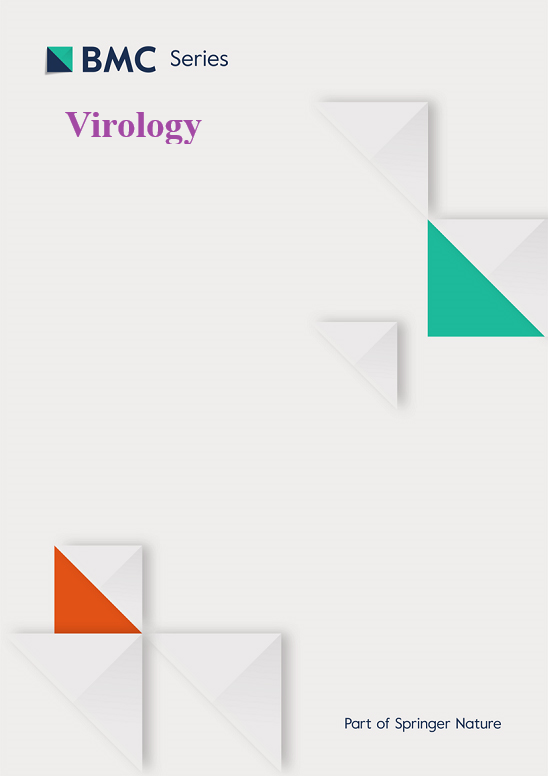Investigation of endocytic pathways during entry of RNA viruses reveal novel host proteins as lipid raft dependent endocytosis mediators
IF 2.8
3区 医学
Q3 VIROLOGY
引用次数: 0
Abstract
Entry of viruses inside host cell after successful attachment is an essential step to ensure its genome replication and progeny production using host cell machinery. Targeting viral entry has been proven an effective therapeutic approach to prevent or treat viral infections. Viruses exploit different operational ligand entry routes to gain entry inside the host cell. Host membrane rafts are crucial for membrane mediated events such as ligand binding and internalization, signaling and pathogen entry. However, those host proteins involved in this phenomenon and molecular mechanism of this mode of endocytosis has not yet been elucidated. In present study, we investigated raft-dependent endocytosis as a major route for host cell entry for three different enveloped viruses viz. SARS-CoV-2, DENV and CHIKV. Subsequently, we performed quantitative global proteomics of SARS-CoV-2 infected Vero cells at the time of virus entry and during peak viral infection and compared proteomic changes with uninfected control. Subsequently, we implemented pathway enrichment of differentially regulated host proteins and identified regulated cellular pathways during different stages of infection. Finally, we investigated the role of selected proteins identified as significantly regulated through proteome analysis along with some of those proteins previously reported to be involved in any mode of endocytosis, in the raft-dependent endocytosis using inhibitor assay and further validated their role in viral entry through loss-of-function assays. Our results confirm that enveloped viruses exploit the raft-dependent endocytosis as a major route for host cell entry. We further report novel host cell proteins that participate as mediators of raft-dependent endocytosis.
对RNA病毒进入的内吞途径的研究揭示了新的宿主蛋白作为脂筏依赖的内吞介质
病毒在成功附着宿主细胞后进入宿主细胞是确保其基因组复制和利用宿主细胞机制产生子代的必要步骤。靶向病毒进入已被证明是预防或治疗病毒感染的有效治疗方法。病毒利用不同的操作配体进入途径进入宿主细胞。宿主膜筏对配体结合和内化、信号传导和病原体进入等膜介导事件至关重要。然而,参与这一现象的宿主蛋白和这种内吞模式的分子机制尚未阐明。在本研究中,我们研究了三种不同包膜病毒(SARS-CoV-2、DENV和CHIKV)的筏依赖内吞作用作为进入宿主细胞的主要途径。随后,我们对SARS-CoV-2感染的Vero细胞在病毒进入时和病毒感染高峰期进行了定量的全球蛋白质组学分析,并将蛋白质组学变化与未感染的对照进行了比较。随后,我们对差异调节的宿主蛋白进行了途径富集,并在感染的不同阶段确定了受调节的细胞途径。最后,我们通过蛋白质组分析研究了选定的蛋白的作用,这些蛋白通过先前报道的参与任何模式的内吞作用,在筏依赖性内吞作用中,使用抑制剂试验进一步验证了它们在病毒侵入中的作用。我们的研究结果证实,包膜病毒利用筏依赖性内吞作用作为宿主细胞进入的主要途径。我们进一步报道了新的宿主细胞蛋白作为筏依赖性内吞作用的介质参与。
本文章由计算机程序翻译,如有差异,请以英文原文为准。
求助全文
约1分钟内获得全文
求助全文
来源期刊

Virology
医学-病毒学
CiteScore
6.00
自引率
0.00%
发文量
157
审稿时长
50 days
期刊介绍:
Launched in 1955, Virology is a broad and inclusive journal that welcomes submissions on all aspects of virology including plant, animal, microbial and human viruses. The journal publishes basic research as well as pre-clinical and clinical studies of vaccines, anti-viral drugs and their development, anti-viral therapies, and computational studies of virus infections. Any submission that is of broad interest to the community of virologists/vaccinologists and reporting scientifically accurate and valuable research will be considered for publication, including negative findings and multidisciplinary work.Virology is open to reviews, research manuscripts, short communication, registered reports as well as follow-up manuscripts.
 求助内容:
求助内容: 应助结果提醒方式:
应助结果提醒方式:


